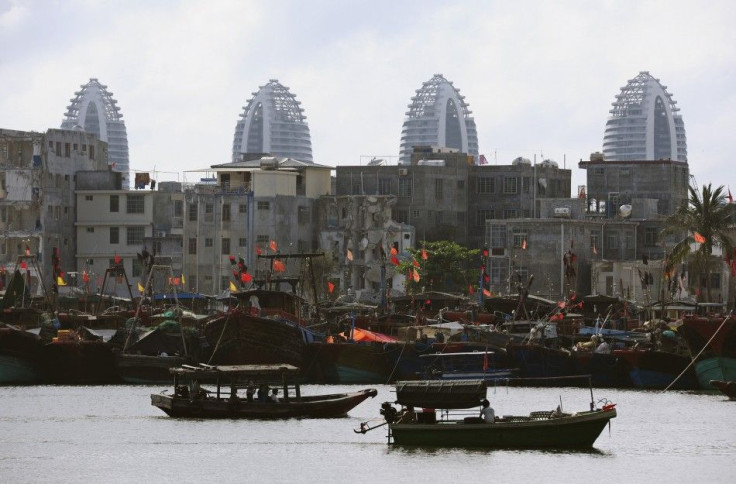Who Are The Chinese? A Ground-Level Look At Stereotypes

KUNMING, China -- Americans, like people all over the world, agree China is becoming more powerful. But that doesn't translate into popularity.
Last week, the Pew Research Center released the results of a 14-nation survey showing 42 percent of respondents now say China has topped the U.S. as the world's greatest economic force. Yet, in the same poll, only 40 percent of Americans said they have a favorable opinion of China, an 11-point drop in the last year alone.
Behind the growing disapproval surely lie some sweeping generalizations about China, which considering the size and sweep of the country inevitably are little more than misperceptions.
China is as diverse as it is populous, with more than 1.343 billion people. Geographically, it is broken up into 23 provinces, plus autonomous regions like Inner Mongolia and special administrative regions like Hong Kong. Each has a distinctive culture. The government recognizes 56 official minoritiy groups, and there are 293 individual languages spoken in China, according to a 2009 publication of Ethnologue, one of the world's foremost language catalogues.
China's incredible diversity continues to surprise even scholars. Frank Bessac, a Fulbright scholar at the dawn of the Cultural Revolution in the 1960s, described with surprise a people [that] did not look like East Asians in Urumqi, a city in northwestern China between Kazakhstan and Mongolia. To me they looked like southern Mediterraneans, Greeks maybe, with large, round eyes, curly hair, prominent noses and olive complexions, he wrote in his book Death on the Chang Tang.
Stereotypes In School
Today, the temptation to generalize remains strong among travelers to China, many of whom are trying to make sense of the chaos and bustle around them. Stereotypes are somewhat understandable -- how else to wrap one's head around the world's most populous nation?
In a Mandarin class for foreigners in Kunming, the capital of Yunnan Province in the southwest, the statements about how China is can sweep broadly, from cultural to culinary: The Chinese don't like cheese; they can't hold their alcohol; they don't respect one another; they are all bad drivers; and so on. Through the din, the teacher is trying to tell her students that she, in fact, does like cheese.
Yet surely there must be some generalizations about China as a whole that Westerners can glean -- after all, every culture has its idiosyncrasies that thread through the social fabric of the country.
Kathleen Kamm, a 58-year-old native of Washington, D.C., has been visiting China for the past five months. Raised in the U.S., Brazil, Panama and Spain, she does charity work with abandoned children in Nepal -- in other words, she's no stranger to learning about foreign lands.
Kamm said she didn't come to China with any strong preconceived notions, but something still shocked her: "One thing that I didn't realize is how huge the cities were, how dense the population was, how big the infrastructure was," Kamm said.
Indeed, last year, marked the first time more Chinese have lived in the cities than the countryside; there are 690 million Chinese in urban areas now.
After that initial surprise, and as she started learning Mandarin, Kamm said she began to see some of the more nuanced differences, specifically how unemotional Chinese people are. "In America, we are very emotional ... but [Chinese people] are trained to never show their feelings", she said. "Showing your emotions in this culture is a real sign of weakness."
Kamm also commented on China's workforce, which she said differs from that of America, where the young are often seen as lazy. Idle and hard-working people can be found anywhere, but Kamm says China's work ethic is distinct. I think one of the greatest strengths of this country is its people, and the unification of the people, and how hard working they are. It's an incredible hard-working workforce like no other nation has," she said.
After decades of world travel, Kamm sent forth a tip to future globetrotters: "Any foreigner brings their culture with us, and everything we perceive, we perceive through our own culture. You almost have to wash yourself of that to understand the people, to know where they're coming from, to not pass any judgment on them."
Beer And Generalizations
In Kumning, language schools aren't the only place where foreigners trade stories and stereotypes about China. O'Reilly's is the only Irish pub in the city, drawing Westerners with its familiar foods and selection of European beers. Joy Chen, a native of Anhui Province in the east, tends bar there several nights a week. With her big smile and fluent English, she's well-loved among expats. She's also a veteran people-watcher, and her observations are insightful.
"The first time [Westerners] get in China, they are all kind of nice and curious and want to know more about it," she said. "Later on when they start to know something about China, they aren't as nice as before."
And after a few pints, Chen said, the complaints start flowing, about anything from the government to minorities, traffic, lack of respect, and, of course, cheese.
Asked what she herself thinks of her country, Chen boasted of its wealth of jobs -- maybe a stereotype, too, but certainly something many patrons of her pub wish they could say about their own countries.
A stereotype that may well be true about the Chinese, as much as about any other people, is that they tend to get defensive about their country when someone from abroad criticizes it. Chen summed it up with the no-place-like-home sentiment likely to be found in any country on Earth: It's possible to say general things about China, but people don't like to hear it.
Taylor Collins is an Asia-based freelance writer.
© Copyright IBTimes 2024. All rights reserved.











